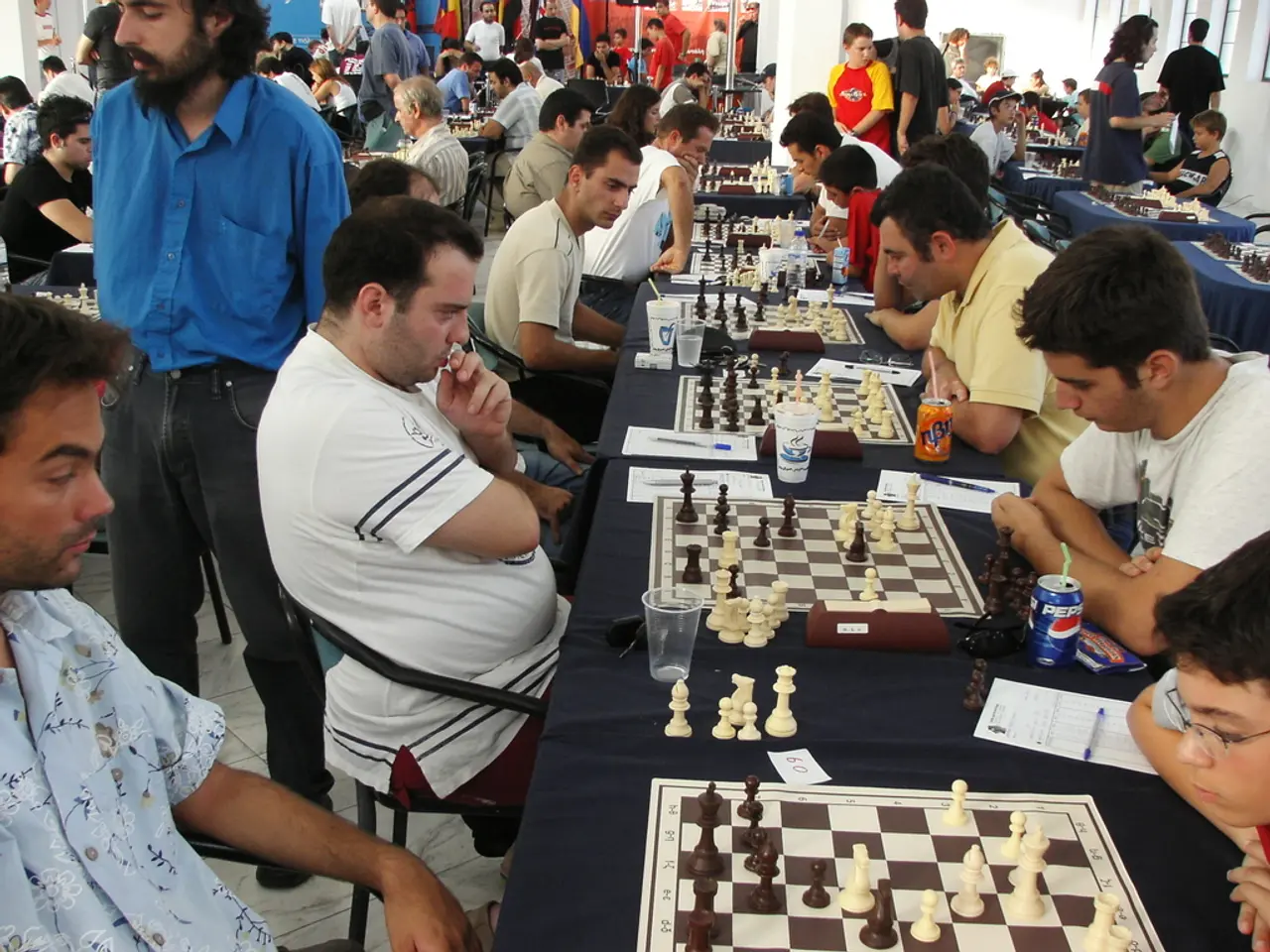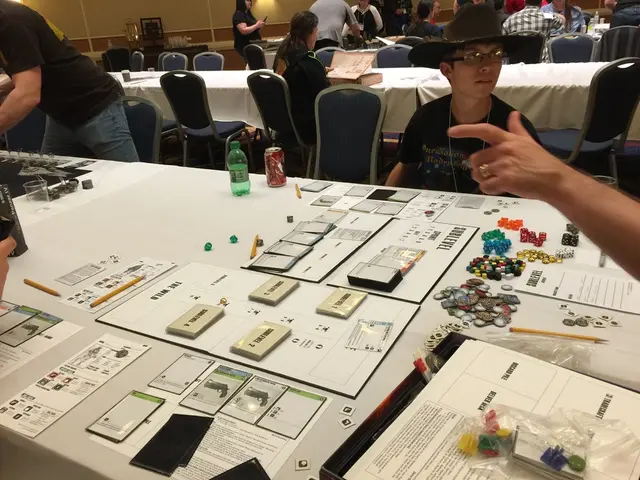Wilson Discusses Defense of The Martingale System's Ineffectiveness
The Illusion of Safety: The Martingale System in Roulette
The Martingale System, a popular strategy among gamblers, promises a 'safety net' by suggesting that a series of losses can be recouped with a single win. This strategy is commonly used on even-money bets, such as red or black, on a roulette table.
The system works by doubling the bet after every loss, with the aim of making the initial stake when the chosen colour wins. For instance, if you start with a $2 bet and lose eight times consecutively, your bets would progress as $2, $4, $8, $16, $32, $64, $128, and $256. When you finally win, you recoup all losses and make the initial $2 profit.
However, the Martingale System is ultimately ineffective at beating the house edge. The system's main flaw lies in the exponential growth of bets, which can become unmanageable during losing streaks, risking huge losses very quickly. Casinos also set maximum bet limits, and players have limited money to wager. Long losing streaks can deplete your bankroll before you win back losses, causing significant financial loss.
Moreover, the Martingale System does not alter the odds or advantage, it just changes betting size — the negative expected value remains. Each roulette spin is independent with a fixed house edge (due to zeros on the wheel). The Martingale System assumes that you will eventually win soon, but each spin of the wheel is independent, and probabilities don’t change based on past outcomes. This misconception leads to overconfidence.
Despite its flaws, the Martingale System can seem compelling due to its promise of guaranteed rewards. However, it can lead to significant financial losses when a string of losing results eventually breaks the player's bankroll. It's essential to remember that roulette wheels have no memory, and the chances of a red or black number coming up remain the same for each individual spin, regardless of previous outcomes.
In an extreme example, a gambler could risk around $4.2 million dollars on a single roulette spin, with the aim of recouping losses and making a small profit. However, the house only loses $1 when a player's chosen colour (red) eventually comes up, regardless of the number of previous losses.
In conclusion, while the Martingale System may create the illusion of a 'safety net,' in practice the risks of large losses, imposed table limits, and the unchanged house advantage mean it does not provide a reliable way to beat roulette in the long run.
Despite the Martingale System being popular in casino-and-gambling, particularly for casino-games like roulette, it's important to note that it doesn't offer a realistic 'safety net'. In contrast, bloggers and players often romanticize the system, overlooking its disadvantages, such as the possibility of losing large sums of money when following the progressive betting strategy on a blog about casino-games.








